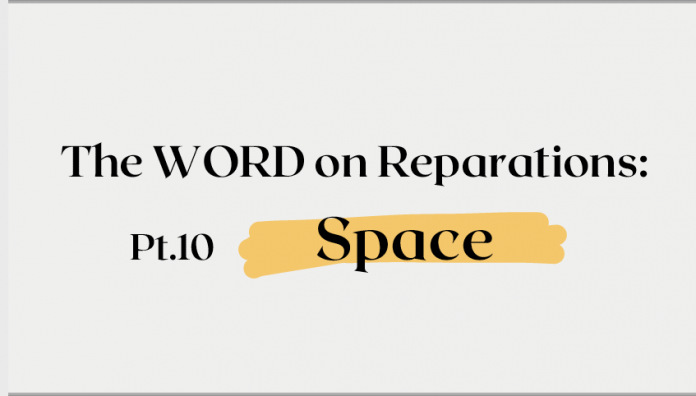Space.
I always feel a solemn energy walking across the brick pathways on campus in the morning — as if I am interfering or taking advantage of another’s labor. I felt it when I saw students’ paintings of the enslaved projected onto the Wren Building’s bricks at dusk during the student-organized art memorial to the enslaved. As the sun set, the watercolor eyes of a mother and her son shined brighter and brighter on the exterior of a building I have taken countless classes in.
When I walk across campus, I look at the students around me and listen to the nonchalant conversation. Here, I don’t feel space. I feel a void — that those who don’t fit in are pushed toward. There’s talk of sports, last weekend’s party, and that next assignment that fills the air. No one mentions last weekend’s protest or the social media posts from activists on campus. As a brown woman, I find space for myself in a box labeled “diverse” and people think that’s enough. Yet, nothing that I go through could ever match the disregard for BIPOC students reclaiming space on campus.
During protests and speaker series, I hear Black voices on campus, ringing through the microphone or megaphone. Every week, I see the same people there. Every week, their pain is laid bare by the hoarseness of their voices as they are told to navigate spaces around campus. Every week, I am humbled more and more about my privilege as a woman of Indian descent from Northern Virginia. Yet, every week, I return to my predominantly white classes and see no effect or change whatsoever. No added space.
Why? No number of renamings, contextualizations or memorials can ever create space for conversations regarding racial equity in the predominantly white gatherings on campus. These efforts are always organized, maintained and emotionally supported by BIPOC students. However, the true burden should be on the campus community now. There is a glaring disconnect in the non-Black person’s perception of campus space.
The space for the “diverse” must expand past a checkbox. It should permeate every committee, every department, and every classroom on campus. It should reclaim space in a way that becomes second nature and inseparable. Student organizations must rebuild their executive boards, the Student Assembly must redefine its departments, and the school’s administration and faculty must reevaluate their distinctions between race-related and “normal” initiatives. As individual students, we should pay attention to the spaces around us and within us, because without that, our community will continue to be limited by the complacency offered by a single checkbox. Until this happens, our space can never be equally accessible.
The responsibility is on us as students. Whether it be through implicit bias training, re-education or conversing with fellow students, the process to redefine space on campus will be marked with mistakes and blunders. As a student, I have learned to become hyper-aware of my interactions with space on campus. I had to learn when I must be at the peripheral and when I must stand up to speak. It’s a difficult, but deliberate, process to acknowledge where we are advantaged and disadvantaged. However, it is painfully necessary as we graduate into careers as doctors, lawyers, politicians, teachers, professors and more. These issues don’t stop at a university level, in fact, they are amplified.
Our campus might look different in a few years. There will be a grand Memorial to the Enslaved standing and facing the Wren Building. Students four years from now will no longer remember the old names of Legacy Circle and Boswell Hall. There will be more robust research presented to us about those enslaved and hurt by the university. But will our BIPOC community feel more empowered then? Or will they continue to face microaggressions in social spaces and feel unheard in classrooms? Will they walk through the Wren during Convocation into 1,200 acres of safe space or will they be burdened by students who continue to be blissfully ignorant? How can we hold people accountable for reparations when they do not start with acknowledging the systemic inequality that they benefit from?
I did not (and still cannot) truly understand the deep frustration and sadness I see in student activists on campus. But I do know that they are students and that they should feel the same sense of power and security from campus spaces as everyone else.
Meghana Boojala is a junior studying finance and religious studies. She is the current Student Assembly president. Email Meghana at mrboojala@email.wm.edu.

